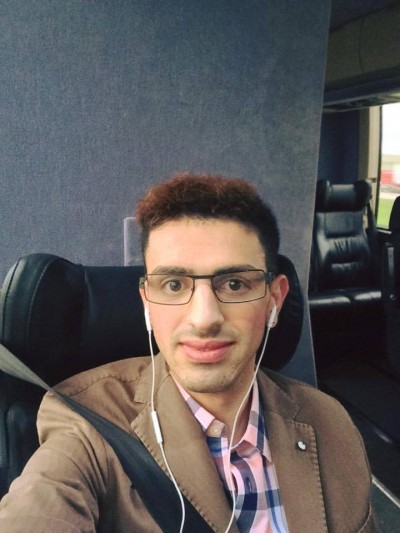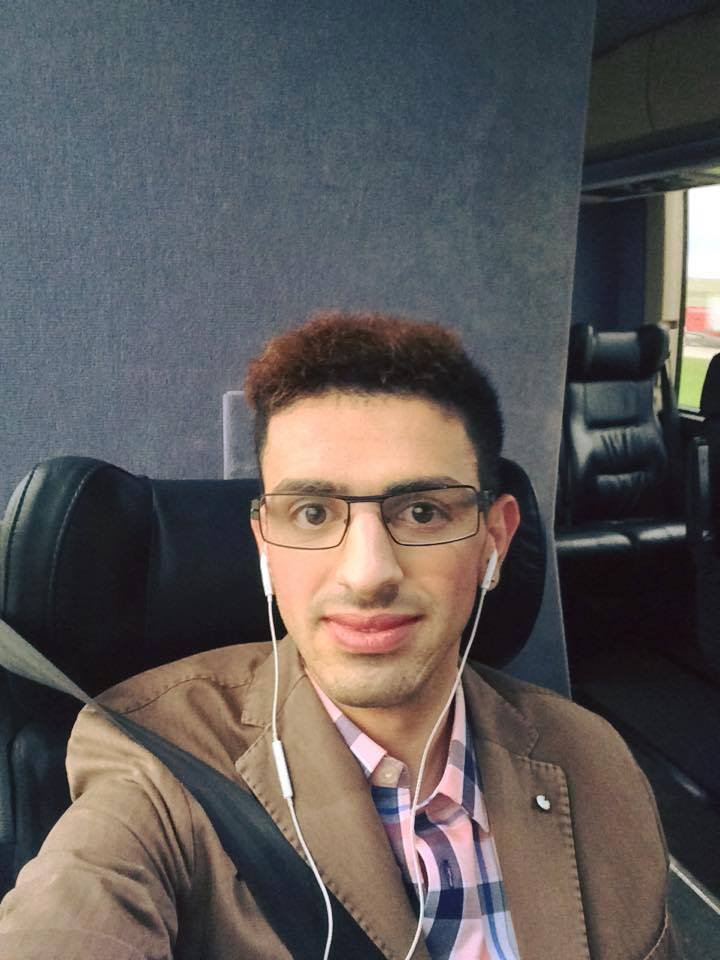
In the 16th century, Protestant theologian John Calvin fled France amidst violence against Protestant reformers. Now, in 2015, the life of his gay Christian Palestinian namesake is in danger.
Born under a different name into a West Bank pro-Hamas family, John Calvin is the grandson of former Muslim Brotherhood leader Said Bilal, who oversaw Hamas in Nablus. At the age of 19, Calvin decided to convert to Christianity and fled to Canada in December 2010 on a scholarship to study at a theological college in Toronto. Six months later, he requested refugee status so that he wouldn’t have to leave Canada and live another nightmare: the prospect of returning to the place of his first, with the likelihood of no return.
Calvin concluded his studies in Alberta in 2012. After two years of legal issues with the Canada Border Services Agency (CBSA), Calvin was informed in December 2014 that his refugee request had been denied and he could be deported within 30 days. In July of that year, his case had been suspended by the CBSA when Canada’s domestic security department decided that Calvin’s association with his family prior to age 18 constituted membership in Hamas, considered a terrorist entity by the Canadian government.
“A deportation order is the equivalent of a death sentence,” Calvin told The Times of Israel, adding that he’d come out as gay to his parents two years ago. “Even if it wasn’t because I’m Christian, it would be because I’m gay.”
Calvin’s story has attracted the attention not only of Canadians, but people around the world. Social media has been part of the promotion: the “Save John Calvin” campaign, advertised on Twitter as #SaveJohnCalvin, has been tweeted more than 400 times; a Facebook page has been “liked” by more than 300 users; and a petition started by the Zionist Federation of Great Britain and Ireland (ZF) has been signed by more than 5,000 supporters.
According to a ZF spokesperson, who asked not to be named, the Federation’s primary objective at the moment is to create a global campaign by contacting Christian and LGBT outlets in the U.K. The organization, which helped Calvin secure an interview with the Times of Israel, is confident that his story will receive enough coverage to be picked up by major U.K. news outlets such as the BBC.
Supporters have also organized a fundraising page for Calvin. The fundraiser was set up by Mark Chiang, a missionary and resource person for Haven, an LGBT Christian community in Edmonton, Alta., where Calvin was an active member. Chiang told New Voices via email that the money raised will primarily be used for legal fees, as well as to cover costs associated with travel and other logistics.
“I think John’s case is particularly unique in that he is both gay and Christian,” Chiang said. “Often queer people of faith are forced to choose one side of their identity. John has bravely stood up for who he is, despite the reaction of his family and his communities of faith. His bravery should be commended.
“He is a passionate, sincere and intelligent young man who has been a blessing to both the church and the gay community in Edmonton.”
Calvin hadn’t always intended to seek a home in Canada, but his intention to convert to Christianity set off a chain of events that culminated in his decision to flee the West Bank.
In 2010, Calvin’s mother discovered him speaking on the phone with a priest regarding baptism. When he confessed his belief in Christianity, he has said, his father tried to stab him. Calvin escaped and hid in a Christian community in a different West Bank city. He rejected a Canadian pastor’s offer of a scholarship to a theological college in Toronto. Calvin declined to name the school, citing potential jeopardy of its work in the Middle East.
In June of that year, Calvin’s father physically assaulted him. Calvin was arrested and sent to a Palestinian Authority jail in Nablus. He was released a month later with no charges filed against him. He stayed with his grandmother after leaving jail, but when he learned that his father planned to kill him, Calvin fled to Jordan and accepted the scholarship he’d previously rejected.
Calvin told the Times of Israel that the rejection of his refugee request came after an immigration official found that he’d knowingly assisted Hamas by transferring coded messages through Israeli checkpoints and shooting at IDF vehicles, which he’d testified to Canadian immigration. He told the Edmonton Journal he didn’t understand the messages he’d conveyed and had never shot the gun, which had been given to him as a birthday gift by his grandfather at age 14.
Calvin is now contesting the order in federal court. Calvin told New Voices via email that he’d tried to contact the office of Canadian Prime Minister Stephen Harper, but did not get a response. In the meantime, he’s looking at asylum options in other countries.
However, the ZF has also been in contact with lawyers to secure Calvin asylum in the U.K. in the event that he’s unable to stay in Canada, according to the spokesperson.
“All of our actions have been done in accordance with John’s wishes – at the end of the day, he’s a human being in desperate need of help, not just another campaign, and our single priority is to keep him safe,” the spokesperson said.
“While we’re confident that we can get his name out there in the few months before he’s scheduled to have to leave, we’re making contingency plans for a safe haven in the meantime.”
Calvin told New Voices that, barring a favorable response from the federal court or Harper, he’ll be deported on Nov. 4. He said seeking asylum in the U.K. is his “second choice.”
“Canada is my home,” he said. “I’m looking into other countries at the moment. But as of yet, no, there isn’t [anywhere else to go].”
Jackson Richman is a student at The George Washington University.

